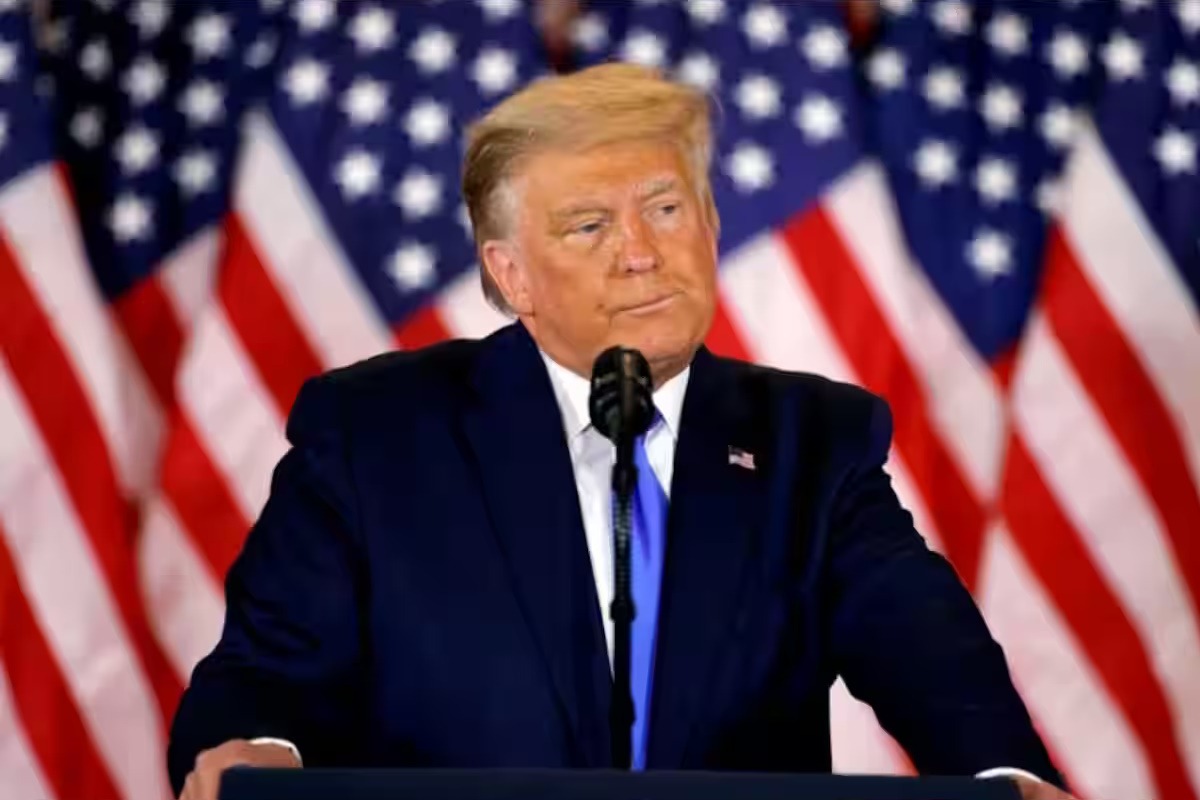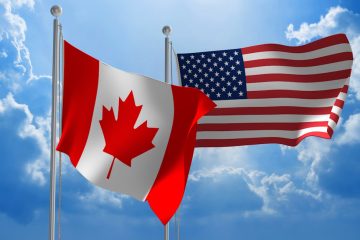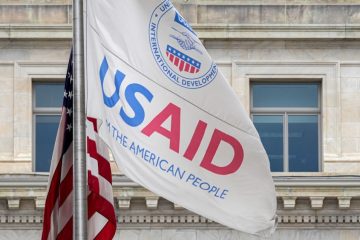Donald Trump spends four days a week as a defendant in a courtroom

The former real estate magnate and prominent political figure, who was previously entrusted with the nation’s nuclear launch codes, now spends a significant portion of his week confined to a dull courtroom in Manhattan. The courtroom is characterized by harsh lighting and inadequate climate control.
Donald Trump, a wealthy individual who is used to traveling by private jet between enthusiastic campaign rallies and his luxurious Florida property, has been enduring an uncomfortable two-week period, with the possibility of another six weeks, sitting at the defendant’s table in the city where he established his real estate business and launched his 2016 presidential campaign. Despite his daily frustration with the 34 felony counts he is currently facing in New York, it is the minor humiliations of going on trial that seem to trouble him the most.
He claims to be extremely cold because of the building’s unpredictable heating system. During court proceedings, he is only allowed to have water, depriving him of the numerous Diet Cokes he typically consumes in a day. He is permitted to utilize the restroom solely when the judge announces an interruption in the legal proceedings. A group of 18 individuals from New York, consisting of 12 jurors and six alternates, have prime seating to observe his every yawn, brief sleep, and mumble.
Trump is required to maintain silence in court while witnesses, who have sworn to tell the truth, provide detailed accounts of his alleged crimes and sexual misconduct just a few feet away.
According to John Catsimatidis, the prominent New York grocery-store tycoon and a close associate of Trump for many years, he is quite unhappy. There is nothing more dreadful than being compelled to remain silent and motionless.
The New York criminal case against Trump, which is the first and potentially the only one of the four cases he is facing to get to trial before Election Day, centers on the accusation that Trump fabricated documents in order to conceal a hush-money payment made to porn star Stormy Daniels in 2016. Daniels had claimed that the payment was related to a sexual encounter that occurred a decade prior. The ex-president has entered a plea of not guilty and has refuted any involvement in the matter.
Every day, shortly before 9:30 a.m., when the court is in session, Trump proceeds down a poorly lit hallway on the 15th floor. Journalists bombard him with inquiries he would prefer to avoid: Did you engage in a sexual relationship with Playboy playmate Karen McDougal? Do you believe that the temperature in the courtroom is intentionally set to a low level in order to cause discomfort? How are you celebrating Melania’s birthday?
He expressed his desire to be with her, but he was now at a courthouse attending a trial that was manipulated in favor of one party. This statement was made on Friday, which also happened to be the day his wife celebrated her 54th birthday.
Trump proceeds to Room 1530, where the closed shades of four expansive windows limit the amount of sunshine entering the room. His family is noticeably missing. The gallery’s wooden benches are filled with journalists whose typing generates an audible commotion when the testimony shifts to accusations of Trump’s personal awareness of hush money.
The warmth of the room has also been a source of discomfort. During the process of selecting the jury, attorney Todd Blanche, who represents Trump, requested the judge to increase the temperature.
“To be frank, if I were to do that, the temperature would likely increase by approximately 30 degrees,” stated Justice Juan Merchan. “We are trembling,” Blanche responded.
Occasionally, Trump seems actively involved in the proceedings, shuffling through documents or quietly conversing with his lawyers, but frequently he appears simply uninterested. He experiences prolonged periods of ocular closure and his head begins to nod. The individual inclines his head in a backward direction and interlocks his arms. Even the most minor expression of independence can elicit a reprimand from the court.
As the day neared its end, Trump rose prematurely. “Sir, please take a seat. Thank you,” Merchan said firmly.
Trump is familiar with New York courts. He observed his attorneys presenting arguments in an elaborate federal courthouse nearby, contending during the winter season that he was not liable to pay compensation to writer E. Jean Carroll for defaming her. Trump frequently attended the civil-fraud trial last year, which took place in the grand ceremonial courtroom of the New York State Supreme Court Building. The walls of the courtroom are adorned with intricate murals. However, in both instances, he attended the court proceedings willingly and had the freedom to enter and exit the courtroom at his own discretion.
The ex-president was unsuccessful in both lawsuits, resulting in civil judgments totaling over five hundred million dollars.
The existing location where the borough’s everyday drug traffickers, robbers, and violent offenders argue their cases is the Manhattan Criminal Courthouse, which is a less attractive place. Outside, there are only a small number of Trump supporters who gather in large numbers when he makes appearances in other regions of the United States. Before the small number of attendees, blue-and-white Department of Correction busses arrive to deliver the incarcerated individuals.
Tina Luongo, the head of the criminal-defense practice at the Legal Aid Society, stated that being on trial is challenging for everyone. Her incarcerated customers are abruptly awakened at Rikers Island at 4 a.m., forcibly placed on a bus, and provided with a cheese sandwich and milk carton for their midday meal. According to her, these individuals must be alert, attentive, and avoid falling asleep.
Trump’s calendar is no longer under his control, since Merchan has displayed little willingness to accommodate the defendant’s personal or legal issues. The court refrained from making a decision regarding Trump’s ability to attend his son Barron’s high-school graduation, stating that he would assess the progress of the case before ruling. The court rejected Trump’s request to attend the U.S. Supreme Court hearing about his immunity from criminal prosecution, despite acknowledging the significance of the case.










